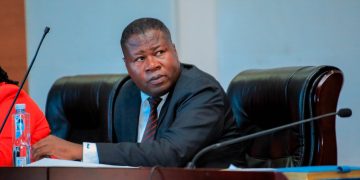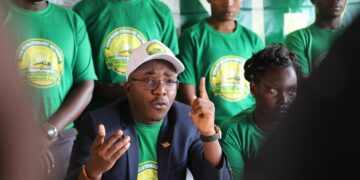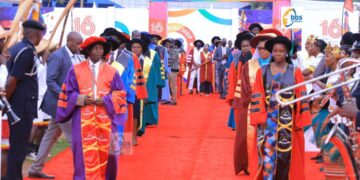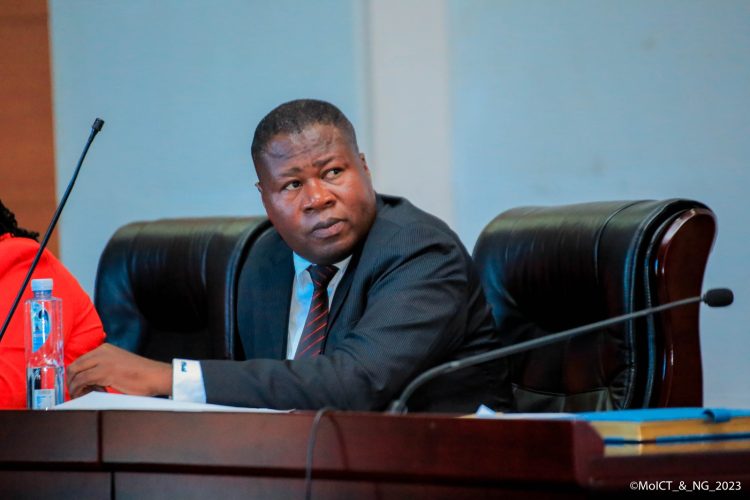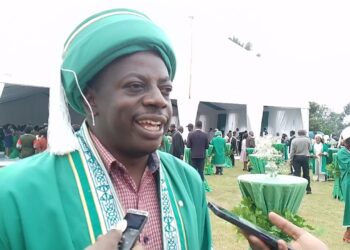OPINION
As Uganda’s political terrain continues to shift, one figure has emerged as a pivotal player: Oboth Oboth. With a career trajectory that draws intriguing parallels with President Yoweri Museveni’s rise to power, Oboth’s ascent warrants closer examination.
Like Museveni, Oboth has navigated Uganda’s complex political landscape with remarkable agility. Both leaders possess exceptional eloquence, persuasive speaking skills, and an uncanny ability to connect with their audience. Their backgrounds, though distinct, share a common thread – a determination to succeed despite the odds. Notably, both leaders have humble beginnings, with Museveni born to a cattle keeper and a farmer in Ntungamo, Uganda, and Oboth’s own poor background a testament to his resilience.

Museveni’s interest in politics was evident from his university days, where he studied political science at the University of Dar es Salaam. Similarly, Oboth’s background in electoral monitoring highlights his passion for politics and his commitment to democratic processes. This early interest in politics has served both leaders well, providing a foundation for their future success.
Their ability to adapt and evolve has been instrumental in their success, allowing them to stay ahead of the curve in Uganda’s dynamic political environment. Just as Museveni’s decisions in the military commission had far-reaching effects on Uganda’s policy trajectory, Oboth’s actions as chairman of the Legal and Parliamentary Affairs Committee have significantly impacted the country’s legal framework.
Age has also been a significant factor in their careers. Both leaders have had age on their side, with Museveni rising to power at a relatively young age and Oboth’s current age positioning him favorably for future transitions. As Uganda navigates its future, Oboth’s youth and energy will be critical assets in shaping the country’s political landscape.
However, Oboth’s rise to prominence has not been without its challenges. As a senior leader, he must navigate complex relationships with his junior staff, including the Chief of Defense Forces (CDF). The CDF’s recent controversial statements on [X] have created a paradoxical situation, where Oboth must balance his own power and influence with the need to maintain stability and cohesion within the military.

This delicate balancing act is a testament to Oboth’s cunning and strategic thinking. His ability to navigate these complex webs of power and influence has been instrumental in his success, and will likely continue to be a key factor in his future endeavors.
The similarities between Oboth and Museveni’s careers raise an intriguing question: can Oboth draw inspiration from his mentor’s success and replicate it? Will he be able to leverage his own strengths and opportunities to rise to the pinnacle of Ugandan politics?
While it is uncertain whether Oboth will follow in Museveni’s footsteps, the parallels between their careers are undeniable. As a key player in the ruling party, Oboth’s influence will be closely watched by observers and stakeholders alike. His ability to navigate complex political terrain, coupled with his willingness to take bold steps, has cemented his position as a rising force in Ugandan politics.
As the country navigates its future, Oboth’s role will be critical in shaping the trajectory of Uganda’s political landscape. Will he be able to harness the lessons from his mentor’s success and forge his own path to the top? Only time will tell, but one thing is certain – Oboth Oboth is a force to be reckoned with in Ugandan politics.
By Gabriel Adusa
Journalist, Speech Writer, and Political Observer
gabieadusa@gmail.com
